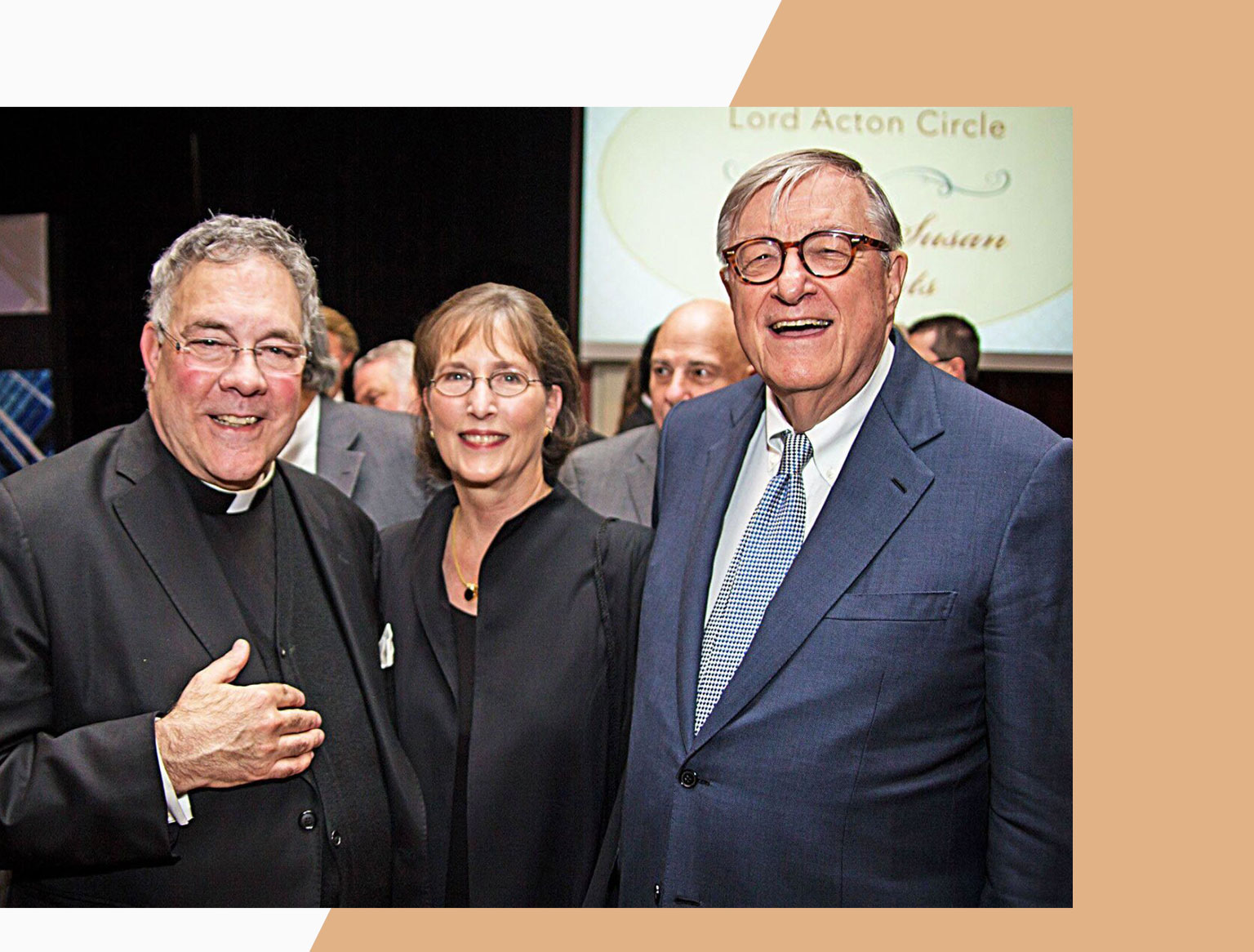A Legacy of Learning: The Roberts’ Gift to Acton Institute
When Susan Roberts recalls how she and her late husband Owen first connected with Acton Institute, she remembers it started with a lunch meeting. In early 1995, one of their longtime employees announced he was having lunch with Father Robert Sirico, a Catholic priest. “I said, ‘Why are you having lunch with a Catholic priest? We’re Episcopalians,'” Susan recounts with a laugh. “He said, ‘Because he’s really interesting.’ And I said, ‘Okay, that’s a good reason.'”
That lunch led to a full-day meeting at the Roberts’ office with Father Sirico and Kris Mauren, who had recently co-founded Acton Institute. The connection was immediate. “The minute we heard about Acton, we said, ‘Okay, we’re in. That’s fabulous. How can we help?'” Susan says. “We are totally in support of what they did and what they are doing. There’s no question in my mind that the philosophy that Father and Kris built into Acton is just essential for freedom.”
Owen Roberts was himself a remarkable example of free enterprise in action. In 1961, he founded a consulting firm with just $1,000 to his name. In those early days, he would budget one dollar per week to make copies at the post office, carefully selecting the ten most important documents to duplicate at ten cents each. But even then, with such limited resources, Owen prioritized buying books.
“He was a voracious reader,” Susan explains. “If you work 100 hours a week, that’s twice as much as most other people work—you’re going to learn twice as much. And he did. He was a total lifetime learner.”
That dedication to learning helped grow his firm from serving local businesses in Pinellas and Hillsborough counties in Florida to advising companies across the United States. The firm’s success allowed Owen to pursue his passion for reading and learning, which was evident in the extensive library he built over his lifetime. The collection spanned topics from finance and economics to history, biography, and leadership.
“If you work 100 hours a week, that’s twice as much as most other people work—you’re going to learn twice as much. And he did. He was a total lifetime learner.”
Among its treasures was a complete set of Franz Pick’s Currency Yearbooks—detailed annual analyses of world currencies that Owen would eagerly read during holiday travels.
After Owen’s passing, Susan found an extraordinary way to support Acton’s mission that went beyond traditional financial giving. During a lunch with Father Sirico, when he mentioned Acton would be honored to have some of Owen’s books, Susan had a bigger idea: “I said, ‘Would you like to have all of his books?'” The entire library now resides at Acton Institute, where it continues to educate and inspire scholars and staff. This gift of knowledge and wisdom demonstrates how supporting Acton’s work can take many forms, each contributing uniquely to the Institute’s mission.
For Susan, legacy isn’t about what you leave behind—it’s about the impact you have while you’re here. “I would hope that my legacy would be the impact that I had while I was living on the organizations that we supported,” she reflects. Today, she continues to champion the causes and principles she and Owen believed in, particularly through her ongoing support of Acton Institute.
“What excites me is that we’ve got the potential—me personally, our organization, Acton, and the other organizations that we support—to make a huge difference in the United States,” Susan says. “I think we’ve gone off track, very much so. Now I would say leverage Acton every possible way we can and continue to spread Acton’s philosophy throughout the world and do our very best to help preserve our precious republic.”
Through their decades of support and Owen’s library finding a new home at Acton, the Roberts have helped advance the vital mission of fostering a free and virtuous society—a legacy that continues to grow and inspire others today.

